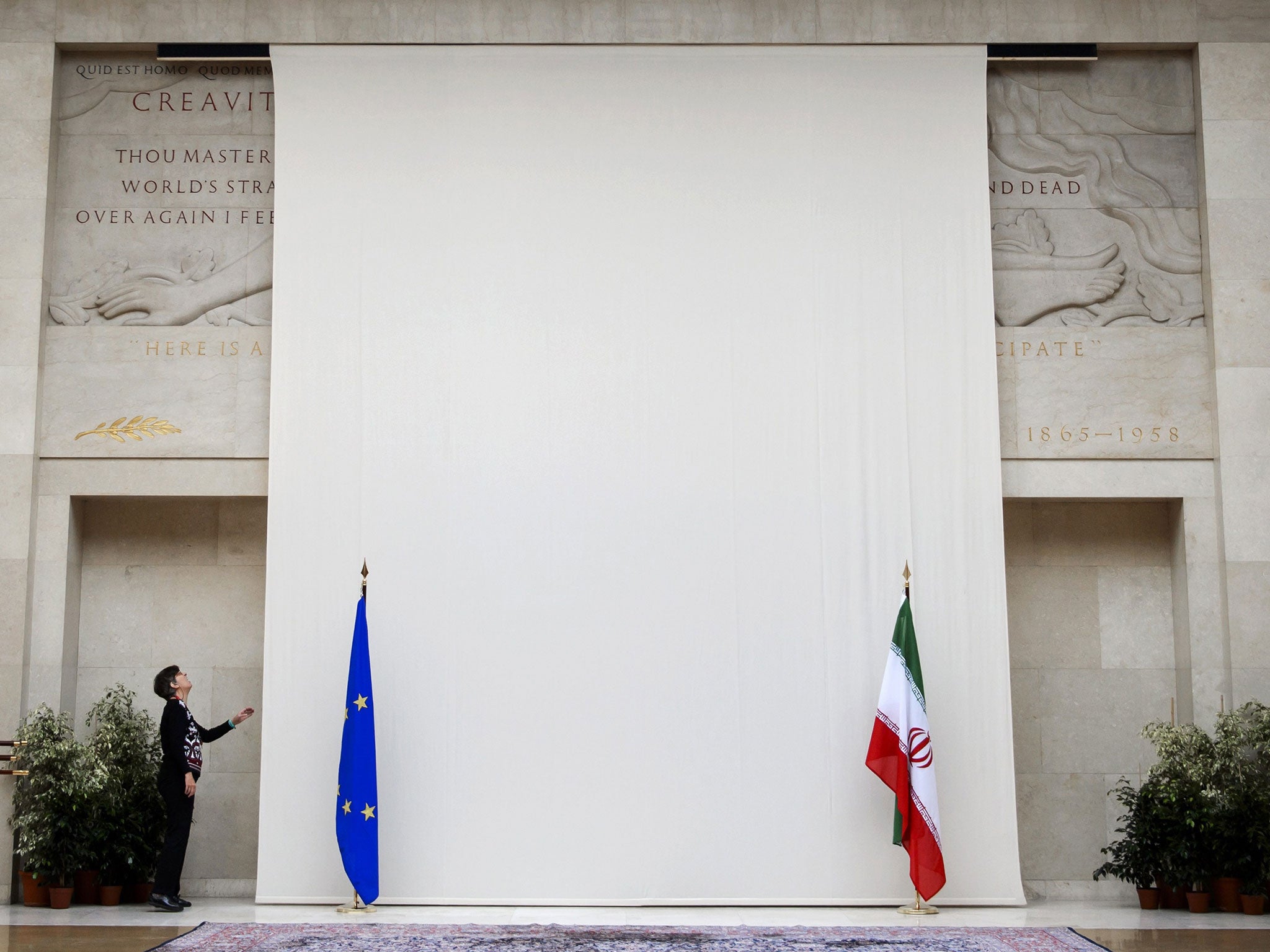Iran’s nuclear programme: does the deal-making start in Geneva?
John Kerry says ‘the window is open,’ as hopes rise of a constructive dialogue with country’s officials

The international community and Iran will start talks over the country’s nuclear programme on Tuesday in a mood of cautious optimism and genuine hope of progress, traits not normally associated with these long-running series of meetings.
The conference in Geneva is the first since the election of the reformist Hassan Rouhani to the Iranian presidency and his highly publicised telephone conversation with Barack Obama. The US Secretary of State, John Kerry, has declared that the window for diplomacy is “cracking open” and there should, say officials, be the chance of constructive dialogue.
The Iranian government has announced that it will present a three-step plan which will allow it to continue developing a civilian programme while supposedly reassuring the outside world that it has not embarked on producing nuclear weapons.
But, at the same time, Tehran has stated that it will not allow its stocks of uranium to be sent abroad for enrichment, a demand of the six states, including the US, Britain and Russia, carrying out the negotiations.
Abbas Araqchi, the Deputy Foreign Minister, was combative on Sunday: “Shipping the material abroad is our red line. We will not surrender or suspend uranium enrichment in any situation… We will not allow even a gram of uranium to go out of the country.”
Some of that, however, is thought to be for the consumption of hardliners in Iran who have already complained that President Rouhani has made “inappropriate” remarks during his recent visit to the UN.
Mr Araqchi could also afford to make a show of taking a tough stance publicly because the highly powerful Parliamentary Speaker, Ali Larijani, has already strongly hinted at concessions being made on the point, saying that the country had a surplus of enriched uranium and hinting that further negotiations were possible.
Western diplomats point out that even a flat refusal to send uranium abroad may not be a deal-breaker if Tehran agrees to proper international supervision in converting its enriched uranium into safe mode inside the country. Iranian officials have suggested that the stockpiles could be turned into fuel cells for a research reactor.
The Iranians would, however, want a relaxation of the international sanctions, which have begun to severely hurt the economy, in return for concessions on their part. Mr Araqchi said:
“We need to move towards a trust-building road map with the Westerners. To them, trust-building means taking some steps in the nuclear issue, for us this happens when sanctions are lifted.”
This would not be an easy process, especially as far as the American sanctions are concerned. The US Congress, with pressure from the Israeli lobby, remains suspicious of Iranian motives and has just passed further punitive sanctions on Tehran’s oil exports.
The Obama administration also remains sensitive on this issue. While speaking of the diplomatic opportunities, Mr Kerry was also at pains to reassure the American Israel Public Affairs Committee. “I want you to know that our eyes are open too. Words must be matched with actions.”
Mr Kerry, it is believed, will stay away from the talks, with the American delegation likely to be led by the Under-Secretary of State, Wendy Sherman, something which, say Iranian officials, is a disappointment. “If the world powers are serious, they must up the level of the talks to that of foreign ministers” said Mr Araqchi.
The next step may be Iran signing the “additional protocol” which allows the IAEA (International Atomic Energy Agency) greater powers to carry out inspections, collect samples and conduct interviews with scientists. This was agreed 10 years ago when Mr Rouhani was Tehran’s senior nuclear negotiator, but ended after an impasse over talks and the start of sanctions.
Whatever happens, Western diplomats are only too aware of “Banquo’s ghost” in these talks. The final decision by Iran on its nuclear programme will need the agreement of Ayatollah Ali Khamenei. As one American official said: “Obviously the talks in these two days are potentially very important, but so would be the talks that take place back in Iran. You can bet we’ll have a team of analysts going through all the nuances of whatever the Supreme Leader has to say on the matter.”
Join our commenting forum
Join thought-provoking conversations, follow other Independent readers and see their replies
Comments
Bookmark popover
Removed from bookmarks